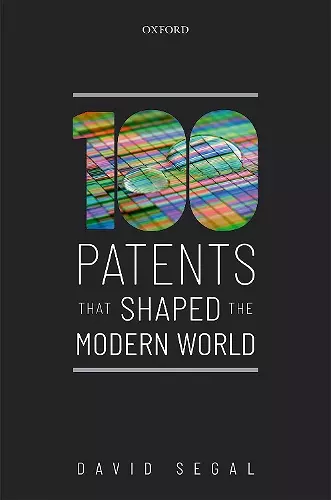One Hundred Patents That Shaped the Modern World
Format:Hardback
Publisher:Oxford University Press
Published:17th Apr '19
Should be back in stock very soon

What would our world today be like without inventions like tarmac, aspirin, liquid crystals, and barbed wire? This guide shows how patents and the inventions they describe have shaped the 21st century. It gives us insights into the inventions, big and small, that have had huge impacts, many unexpected, on multiple spheres of our lives, from popular culture and entertainment, to global health, to transportation, to the waging of war. It features patent documents that date from the mid-19th century to the present. Patent documents describe inventions and represent an accurate and rich source of information about the history and current state of modern technology, as patents are examined and their accuracy can be challenged. The subject matter covers many technical areas. Patents discussed include, for example, Morse code, the diode, triode, transistors, television, frozen foods, ring-pull for soft drink cans, board games such as Monopoly, gene editing, metamaterials, MRI, computerised tomography, insulin, and monoclonal antibodies such as Herceptin. The text is illustrated with drawings adapted from the original patent documents. Patent numbers are included to allow interested readers to trace the documents. Inventions described in the patents are placed in historical perspective. For example, the book discusses the role of the cavity magnetron and radar in World War II, and the influence of the diode on the development of broadcasting at the beginning of the 20th century.
Segal is not afraid to include equations and structural formulae where they add clarity. His approach is chronological, thus we have the board game Monopoly (1935) and the photocopying method of xerography (1940) sandwiching polythene (1937) and nylon (1938), and later, the polyamide Kevlar (1972) between the computer mouse (1970) and Post-it notes (1972). * Alan Dronsfield, Royal Society of Chemistry *
ISBN: 9780198834311
Dimensions: 239mm x 165mm x 19mm
Weight: 542g
242 pages